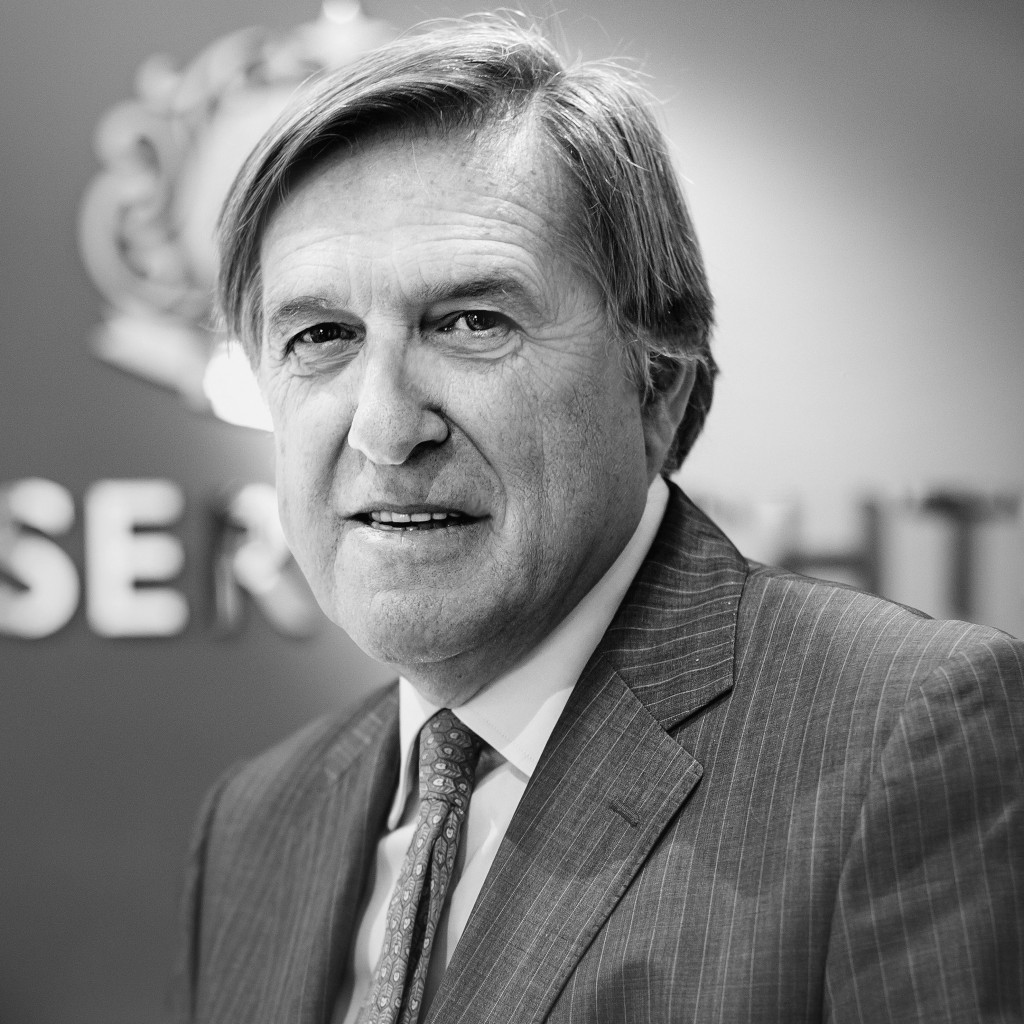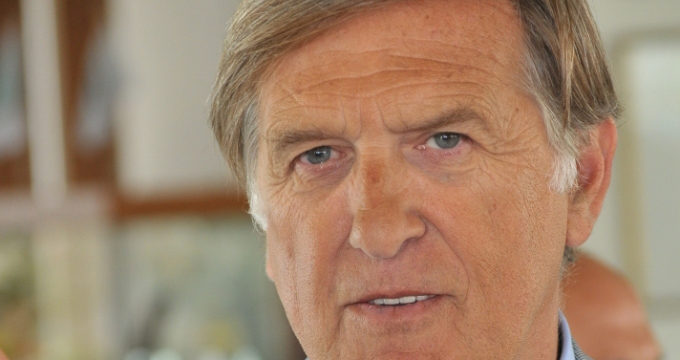Q&A with Roberto Giorgi, Chairman of Fraser Yachts

Sign in to your Premium Account to read the full story.
[ihc-hide-content ihc_mb_type=”show” ihc_mb_who=”reg” ihc_mb_template=”” ]
Notwithstanding his great achievements in shaping the industry and creating one of the leading global maritime service providers, his human qualities and incredible charisma come to mind at first. He always welcomes you with a smile, a kind word and incredible knowledge.”
This 2016 edition of the Monaco Yacht Show is special for Mr Giorgi. At the opening Gala, the company will present the inaugural The Richard Earp Award to one of 12 candidates in the yacht brokerage industry. The award is sponsored by Fraser Yachts but Mr Giorgi hopes this will develop into an industry award, honouring “charisma and fair and ethical behaviour”.
Richard Earp, a well loved and respected broker, also known for his great sense of humour, died earlier this year at the age of 66. Mr Earp was “renowned for his gentlemanly conduct and fair negotiations, valuable attributes that should be encouraged in this growing and competitive industry”.
ML: You are hands down the go-to person in Monaco for yachting. How did you end up in the Principality?
RG: I’m a shipping guy, not really a yachting guy. I studied in Genoa, the nautical technical college in Genoa is quite famous, and after, I joined the Italian navy so I was at sea for about nine years, first on a cargo vessels and then seven years in cruising. I finished as a First Officer on a cruise vessel, mostly in the South Pacific region.
People from Genoa become either seafarers or traders. I left the sea and came to Monaco in 1980 and started working for a ship owner. In 1984, we started a management company – V.Ships – and it became the biggest ship management company in the world with a team going from 34 ships in 1984 to around 1000 ships today. We have around 70 offices around the world, 37,000 seafarers and about 2,800 shore personnel. I left in 2015.
V.Ships were also running a lot of cruise vessels, we had all the luxury small vessels like Silversea, Club Med, and we customised the product according to the client. We ran more than 100 luxury cruise vessels 150-metres long. But we saw that superyachts were getting bigger and bigger, up to 120 metres and so there are lot of similarities between a small luxury cruise vessel and a megayacht.
We started a new division called V.Yachts in 2003 and got business like Christina O, Rising Sun, Golden Odyssey, and started to build up a yacht business. Then we met Paolo Vitelli from Azimut Benetti and discussed collaboration.
We thought about doing after sales service for the Benetti fleet but got together and bought Fraser Yachts around 2004 with V.Ships as a minority shareholder and Azimut Benetti as the majority. We then put the business we had in V.Yacht into Benetti, which explains why it was important to work with a brand that had much more visibility in the yachting business. We combined our know-how. About two years ago they asked me to become chairman of Fraser with the objective to find a new CEO. Raphael Sauleau, who’s been working with me for 15 years in V.Ships was appointed in February this year. He was the best person for the job as I know he’s a very good manager, with good communication skills and two years’ experience running a luxury product,
ML: How has the industry changed?
RG: The industry first became more mature with more imposed regulations and more professional from the point of view of operations. With bigger boats, up to 120 metres, you have a completely different challenge and different skills to operate it safely. And there are the logistics as well. These are not simply boats that go from Monaco to St Tropez. They are boats that go around the world. They need different assistance depending where they are going, to know the rules in different areas. In the future there will be more regulations, as in shipping. A yacht manager must make sure the owner has no headaches about these regulations, to make sure that the experience of owning or chartering a yacht is trouble-free.
The skill of the builders is very important. When thinking about yachting, you should appreciate its impact on the economy, not only the local economy in Monaco, but yards in Holland, and in Germany and also the involvement of artisans, creating the furniture, the training of seafarers, regulations, catering, provisioning, all these industries involved directly or indirectly in yachting. A much higher level of skills is srequired today compared with 30 years ago.
ML: Any key stats to share about the shipping and yachting industry?
RG: The market is always changing. After the 2008 crisis there were less orders to the yards but now business is returning, although not at the same speed. The over-80 metre is the one increasing, more growth for very large boats. The 40m to 60m market is stable, with an interest in expedition boats, and the under 40m market is still under some pressure this year. The market for new constructions is better than last year.
ML: And trends?
RG: The charter brokerage market had its top year last year. It’s down a little this year, but still very good. Why? American business was slow this year. Last year they were booking six months in advance but in this year, it’s much shorter notice.
Also, it’s election year so there’s less confidence and also after the events in Nice, some Americans have cancelled coming to Europe or to the Mediterranean or France.
The Russian economy is not the best because of the local currency in Russia. So there are a number of elements, but the charter market remains in good shape.
ML: Talk about Fraser Yachts.
RG: Fraser Yachts is one of the top ten brokerage firms and number one in terms of number of sales, especially in the 40 to 65-metre category. Burgess would be on top for value in yachts over 80 metres.
So Fraser Yachts is one of the top players. We have six main services: sales brokerage, charter brokerage (clients looking for a boat to charter) charter management (a boat owner looking to charter out), yacht management (managing all the operations of the yacht – crew, insurance, safety), the crew network, and project management for new building supervision or refurbishment, or upgrading or lengthening a boat. Of these, sales is the most important in terms of revenue.
Fraser will celebrate its 70th anniversary next year. It has an international reputation and we put an emphasis on the quality of its brokers and managers. Our headquarters are in Monaco with offices around the world, San Diego, Seattle London and a team of 135 in total, around 50 based in Monaco.
ML: Do people change jobs often in the industry?
RG: We have quite a high retention particularly among the senior staff. We have some brokers who have been with us for 20 to 30 years. In the US, brokers tend to be independent, in Europe they tend to be staff brokers.
ML: To buy or to build? That is the question.
RG: This is part of the role of the broker. Buying a yacht is buying a dream. It’s emotional, but also you must find the right investment, a boat that will maintain value. Other points that brokers help with are taxation, registration, the flag and so on.
The timeline consideration for building a big boat, larger than 60 metres, can take over 3 years. And you’ll need to find a yard that is ready to start building. The advantage, of course, is the personalisation although the specifications are important for pricing; if you change your mind you add time and cost.
ML: What is the first step in building your dream yacht?
RG: Finding the right broker. Some have more knowledge about building. The broker has to understand the needs of the client. Private use or for chartering, as an example. Boats for charter must comply with stricter regulations. There is a current demand for expedition boats which brings a different concept for building boats.
ML: The biggest mistake people make in building their yacht?
RG: Many people look at a yacht as if it were a private house, to be personalised to one’s own style. The problem with the super customisation of a yacht comes when the owner wants to sell.
ML: How extravagant can owners be?
RG: Often, this can be seen in toys that come with the yacht. Otherwise, boats can be technically, or artistically extravagant. When you admire a beautiful house, you often look at the architecture. It’s the same with a boat. When I look at a boat I see the hours of work it represents, the skills that have gone into building it. A lot of the ideas from yacht design are being sought for cruise liners, for example, they take yacht designers to create a master bedroom.
Technology is constantly evolving as we see with new bow shapes. Also, more consideration for the environment. Fraser Yachts looks for partners that adhere to an environmentally friendly approach and charity organisations involved in keeping the oceans clean.
ML: Is this one of the challenges for the industry?
RG: It is important to put more emphasis on the environment. It’s something you have to do, even if there is a financial cost. There’s no choice. In the training of the personnel, you must consider not only the operation of the ship for it to be cost effective, but also how to protect the ocean. In business you have to go forward. The future will be different from what you see today.
ML: Tell us a little more about the Richard Earp Award that you’ll present tonight.
RG: Richard was a Broker who died a few months ago at the age of 66. He had style, charisma, integrity and was a mentor for young people. He was one of the people who impressed me the most in my life. So I created this award to honour a broker with the same charisma and style. We have an impressive list of 12 high profile candidates nominated by other brokers in the industry. We have a panel of judges from the industry – but not brokers – and we hope to give young brokers a good model to aspire to rather than the old style of the individualist broker.
The group of judges is made up from across the industry and includes Eric Blair (Secretary General of LYBRA), Fiona Maureso (President of MYBA), Espen Oeino (Yacht Designer), Jay Tooker (Lawyer at Holman Fenwick Willan), Michael Bremen (Sales Director at Lurssen) and Gianbattista Borea d’Olmo (CEO of the Ports of Monaco).
ML: And, finally, your favourite industry app?
RG: I’m 66. I still use my phone for calling more than for apps. But there is one that I love –Maritime Traffic. It gives all the information about any boat in transit in any port in the world, where it is heading, where it came from, when it was built, its flag … so I can locate the movement of a particular of a boat that I’m interested in. This is very different from when I started, when we didn’t even have mobile phones!
READ MORE: Monaco Yacht Show Series Original: Irina Peterson
READ MORE: Monaco Yacht Show Series Original: Thomas Hill
READ MORE: Monaco Yacht Show Series Original: Darrell Hall
READ MORE: Monaco Yacht Show Series Original: Lidia Bersani
READ MORE: Monaco Yacht Show Series Original: Carey Secrett
READ MORE: Monaco Yacht Show Series Original:Sylvester S Marinov
Article first published September 27, 2016.
[/ihc-hide-content]
